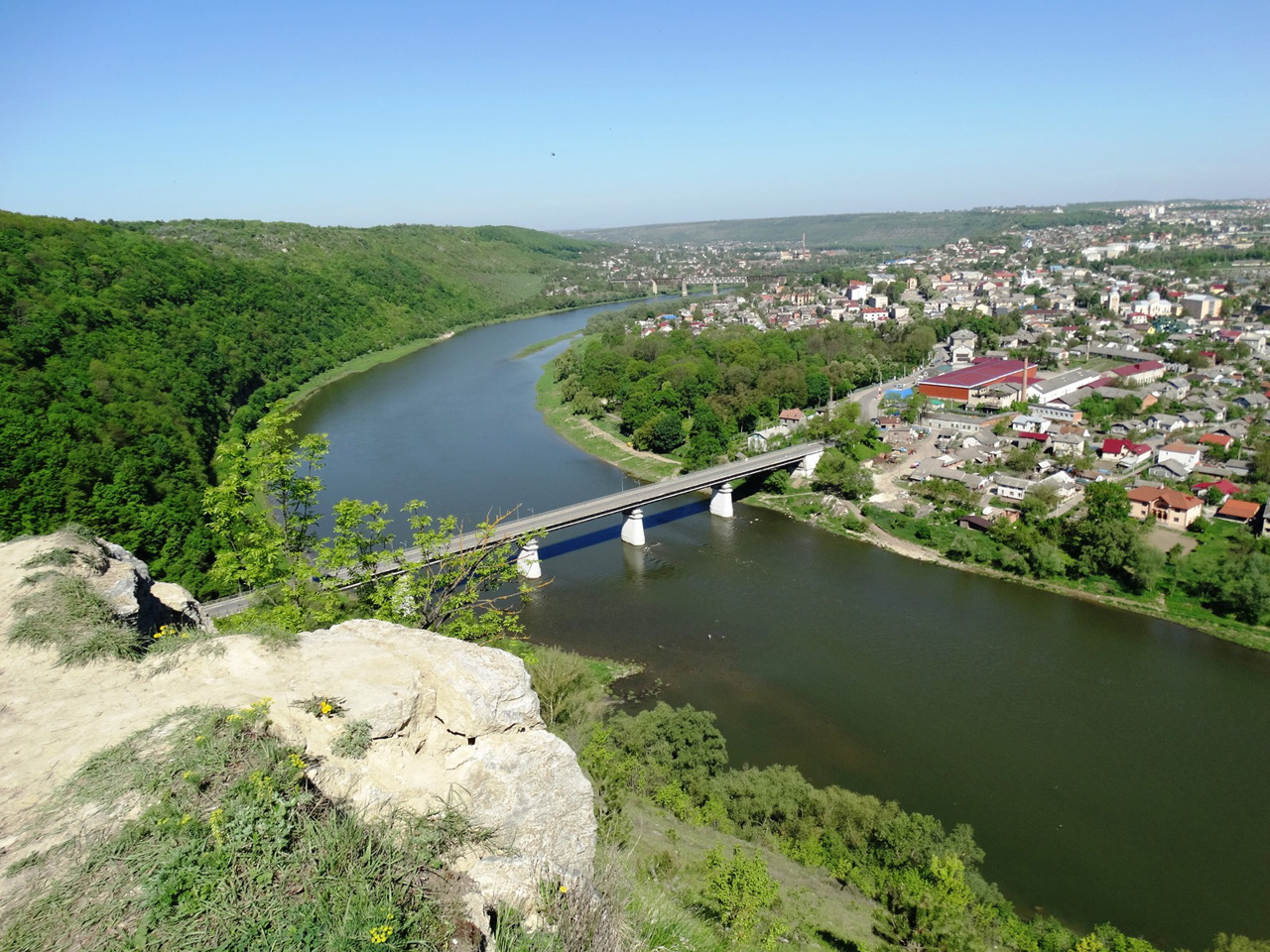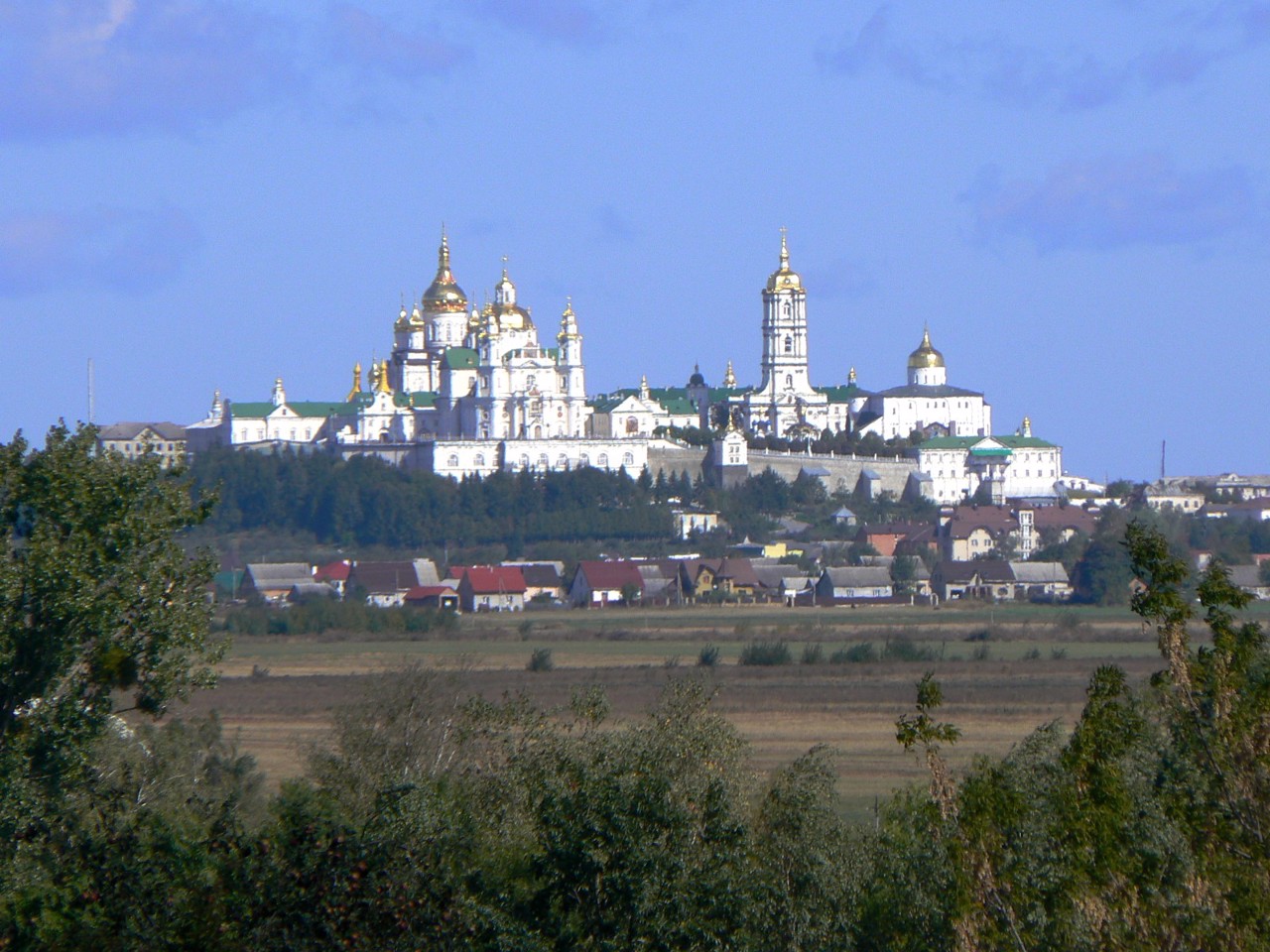Functional temporarily unavailable
Settlements
Ternopil region
Cities and villages of
Ternopil
region
Online travel guide to the settlements of
Ternopil
region

Districts of Ternopil region
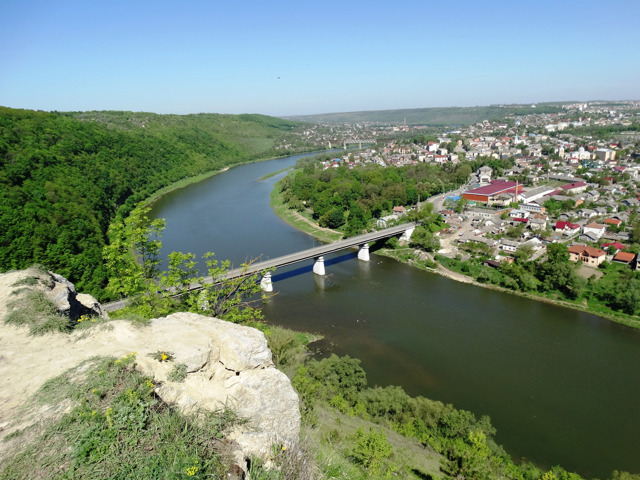
Chortkiv district
Chortkiv district (Chortkivskyi) is located in the southern part of Ternopil region, at the junction of historical and ethnographic regions of Halicia and Podillya. The Seret and Strypa rivers flow within the district, the southern border runs along the Dniester River, and the eastern border runs along the Zbruch.
Here lies the ridge of the Halician Tovtry (Medobory), ... Read more
Chortkiv district (Chortkivskyi) is located in the southern part of Ternopil region, at the junction of historical and ethnographic regions of Halicia and Podillya. The Seret and Strypa rivers flow within the district, the southern border runs along the Dniester River, and the eastern border runs along the Zbruch.
Here lies the ridge of the Halician Tovtry (Medobory), the nature of which in this part is protected by the reserve "Medobory" with the administration in Hrimailiv. The Dniester Canyon National Nature Park with its administration in Zalishchyky includes the Chervone tract with the ruins of the Chervonohorod Castle and the largest plain waterfall in Ukraine on the Dzhuryn River. Panorama of Zalishchyky in the meander of the Dniester is one of the tourist attractions of the region.
Chortkiv district is the main cave region of Ukraine. Here are the largest and most interesting karst caves available for viewing: Verteba Cave (arranged), Kryshtaleva Cave (arranged), Mlynky Cave, Ozerna Cave, Optimistic Cave, Pearl Cave, Jubilee Cave.
The administrative center of Chortkivskyi district is the city of Chortkiv, known for its distinctive architectural complex of the historical center and the ruins of Chortkiv Castle, which, together with Yazlovetsky Castle and Pidzamochkivsky Castle, is part of the National Reserve "Ternopil Castles". Also on the territory of the district there are Buchach Castle, Skala-Podilsky Castle, Yahilnytsky Castle, Sidoriv Castle, Zolotopotosky Castle, Kryvchansky Castle, etc. The artistic heritage of the outstanding sculptor Johann Pinzel is most widely represented on the streets and in the temples of the city of Buchach. The city of Borshchiv and its environs is known for its special embroidery, which is dominated by black.
The area of the district is 5022 square kilometers. The population of the district reaches 335 thousand people.
Chortkiv district includes 362 settlements, which are united in 22 territorial hromadas: Borshchivska, Buchatska, Zalishchytska, Kopychynetska, Monastyryska, Khorostkivska and Chortkivska city hromadas, Hrymailivska, Husiatynska, Zavodska, Zolotopotitska, Koropetska, Melnytse-Podilska, Skala-Podilska and Tovstenska settlement hromadas, Bilobozhnytska, Bilche-Zolotetska, Vasylkovetska, Ivane-Pustenska, Kolyndianska, Nahirianska and Trybukhivska village territorial hromadas.
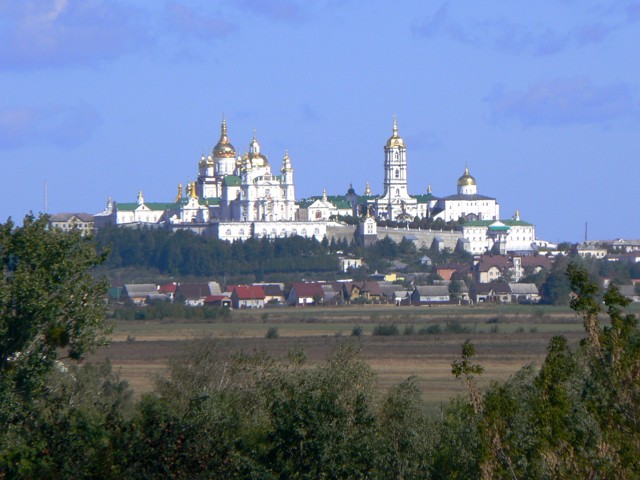
Kremenets district
Kremenets district (Kremenetskyi) is located in the northern part of Ternopil region, at the junction of historical and ethnographic regions of Halicia and Podillya. The Horyn and Ikva rivers flow within the district.
Here lies the ridge of the Halician Tovtry (Medobory), the nature of which in this part is protected by the National Nature Park "Kremenetsky Mounta... Read more
Kremenets district (Kremenetskyi) is located in the northern part of Ternopil region, at the junction of historical and ethnographic regions of Halicia and Podillya. The Horyn and Ikva rivers flow within the district.
Here lies the ridge of the Halician Tovtry (Medobory), the nature of which in this part is protected by the National Nature Park "Kremenetsky Mountains".
The administrative center of Kremenetskyi district is the city of Kremenets. Here are such historical and cultural monuments as Kremenets Castle, the complex of the Jesuit College with a church, the Epiphany Monastery, the Literary Memorial Museum of Juliusz Słowacki. Kremenets Botanical Garden has the status of a botanical garden of national importance. Vyshnivets Palace, which is part of the Ternopil Castles National Reserve, is also located within the district. The Pochaiv Assumption Lavra is an important spiritual center of western Ukraine.
The area of the district is more than 2635 square kilometers. The population of the district reaches 145 thousand people.
Kremenets district includes 204 settlements, which are united into 8 territorial hromadas: Kremenetska, Lanovetska, Pochaivska and Shumska city hromadas, Vyshnivetska settlement hromada, Borsukivska, Velykodederkalska and Lopushnenska village territorial hromadas.
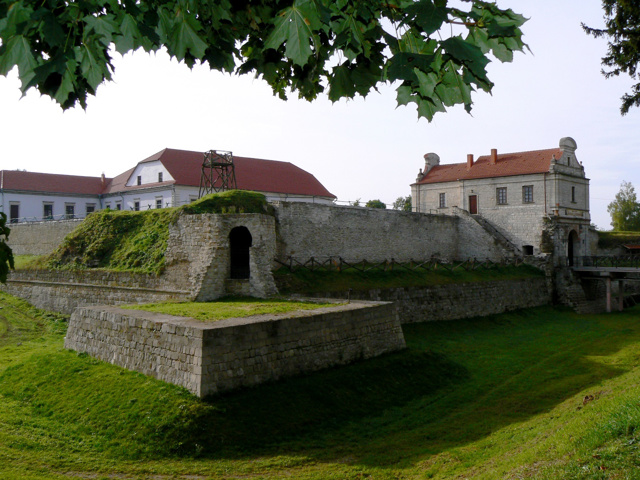
Ternopil district
Ternopil district (Ternopilskyi) is located in the central part of Ternopil region, at the junction of historical and ethnographic regions of Halicia and Podillya. The rivers Seret and Strypa flow within the district, the eastern border runs along the river Zbruch.
Here lies the ridge of the Halician Tovtry (Medobory), the nature of which in this part is protected by t... Read more
Ternopil district (Ternopilskyi) is located in the central part of Ternopil region, at the junction of historical and ethnographic regions of Halicia and Podillya. The rivers Seret and Strypa flow within the district, the eastern border runs along the river Zbruch.
Here lies the ridge of the Halician Tovtry (Medobory), the nature of which in this part is protected by the reserve "Medobory". Zarvanytsia Regional Landscape Park covers the natural areas around the Zarvanytsia Spiritual Center - one of the largest shrines of the Ukrainian Greek Catholic Church.
The district has one of the largest concentrations of ancient castles in Ukraine. In particular, the National Reserve "Ternopil Castles" includes Zbarazh Castle, where the reserve administration is located, Berezhany Castle, Mykulynets Castle, Skalat Castle, Terebovlya Castle. Several more castles have been partially preserved.
The administrative center of Ternopilskyi district is the regional center, the city of Ternopil. There are such historical and cultural monuments as Ternopil Castle, Dominican Church, Exaltation Church, Ternopil Historical and Memorial Museum of Political Prisoners. One of the symbols of the city is the Ternopil pond, which is part of the Zahrebellia Regional Landscape Park together with the Ternopil Arboretum and Zdorovia Park.
The area of the district is 6162 square kilometers. The population of the district reaches 567 thousand people.
The Ternopil district includes 492 settlements, which are united in 25 territorial hromadas: Berezhanska, Zbarazhska, Zborivska, Pidhaietska, Skalatska, Terebovlianska and Ternopilska city hromadas, Velykoberezovytska, Velykobirkivska, Zalozetska, Kozivska, Kozlivska, Mykulynetska and Pidvolochyska settlement hromadas, Baikovetska, Biletska, Velykohaivska, Zolotnykivska, Ivanivska, Kupchynetska, Naraivska, Ozernianska, Pidhorodnianska, Saranchukivska and Skorykivska village territorial hromadas.
